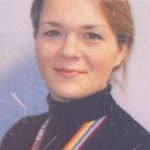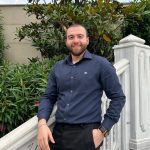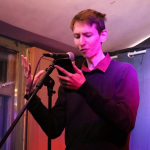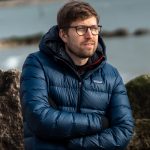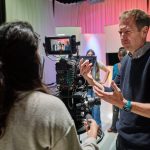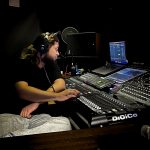 Produced by Guest blogger
Produced by Guest blogger
My name is Macy Patten, I am 21 and heading into my third year at Bournemouth University where I study BA (Hons) History.
The social, cultural, and people-focused modules really interested me, and learning to understand people and society more deeply was something I knew would benefit me personally and professionally in some capacity. Additionally, Bournemouth places a lot of importance on placements, volunteering, and new experiences, which I found inspiring.
When I found out about Play Action International at Fresher’s Fair, a summer volunteering in Uganda with them was an easy yes for me. The charity staff I met at Freshers were so enthusiastic about the Uganda Project that I was keen to find out what all the excitement was about, so after speaking with them I attended introductory online meetings and explored their website. I was instantly inspired and couldn’t wait until I could go out and volunteer in a school myself.
I am grateful for the support I received via the Turing Scheme as I would not have been able to afford this life changing experience on my own. The funding helped me pay for my flights, insurance, and vaccinations, but was also essential in helping with all my in-country costs. This included everything from accommodation, food, and excursions (such as safari and kayaking) on the weekends and project days off. Receiving Turing funding gave me more freedom to immerse myself in the Ugandan culture and make the most of the experience.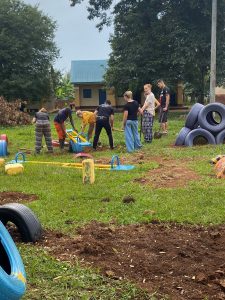
The excitement I felt about participating in this project did not go way when we finally arrived. Meeting everyone I would be working with and driving through the country from the airport to our project location felt so exciting-it was finally feeling real! Everything I had heard about Uganda before going was true; the country is beautiful and the people there are so friendly and welcoming that we all felt at home so quickly.
At the start it was strange to not have phone signal or access to the internet but by day 3 I didn’t miss it at all. We were never once alone on this trip so were never short of things to do or people to talk to… I loved spending long days just talking to people, doing so much good, and coming up with new ways to entertain ourselves.
I felt genuinely happy being detached from the unnecessary stress we make for ourselves online and in our everyday lives at home that by the time I eventually could access my phone, I didn’t even want to!
In the days, after we had done some work on the playground, we would read together, play big games of football or netball with the kids, or do yoga on the field (the kids always found this funny and tried to copy us). In the nights after dinner, we would play card games, charades, or any other games people could come up with.
On weekends we would take the bus into town where we would explore the local shops and food, and I was able to design and buy a beautiful dress that was hand made for me by a lovely lady called Sylvia.
Building the playground was more work than I had anticipated, I didn’t imagine we’d be digging over 50 holes across 7 days. I did struggle in the heat, and it did occasionally feel like it was never going to end, but by the 7th day when we finished digging it felt so rewarding. Once we had spent a few days sanding everything down and making all the cement, we were able to start putting the equipment into place.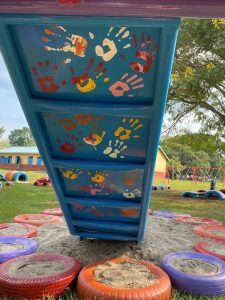
This was when we were all able to see our work coming together and it started to hit me that I was actually in Uganda building a playground! My favourite part of the build was the painting in the last two weeks. I felt like I was getting to really leave my stamp on the playground and it was our chance to make decisions and make it our own. By the last day, we could not believe what we had achieved, and we were so proud and excited. All the mornings of hard work in the sun were truly worth it.
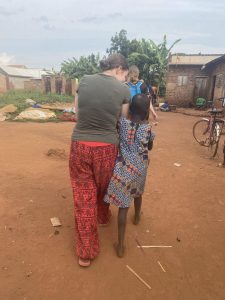
This trip opened my eyes up to just how different other cultures are. Being at the school made me more appreciative of the education I have received and have access to, as it was clear how hard the children were working to learn and how passionate they were about it. It made me realise that education is significantly more limited in other countries and that part of the reason for such different perspectives in history are often due to a completely different curriculum and resources.
Before this, I hadn’t given much consideration to reasons for different perspectives, but now I am much more curious about how and why people learn and think about history so differently.
I think having this global outlook and influence at the forefront of my mind is going to develop my historical analyses and help me progress my critical thinking much further.
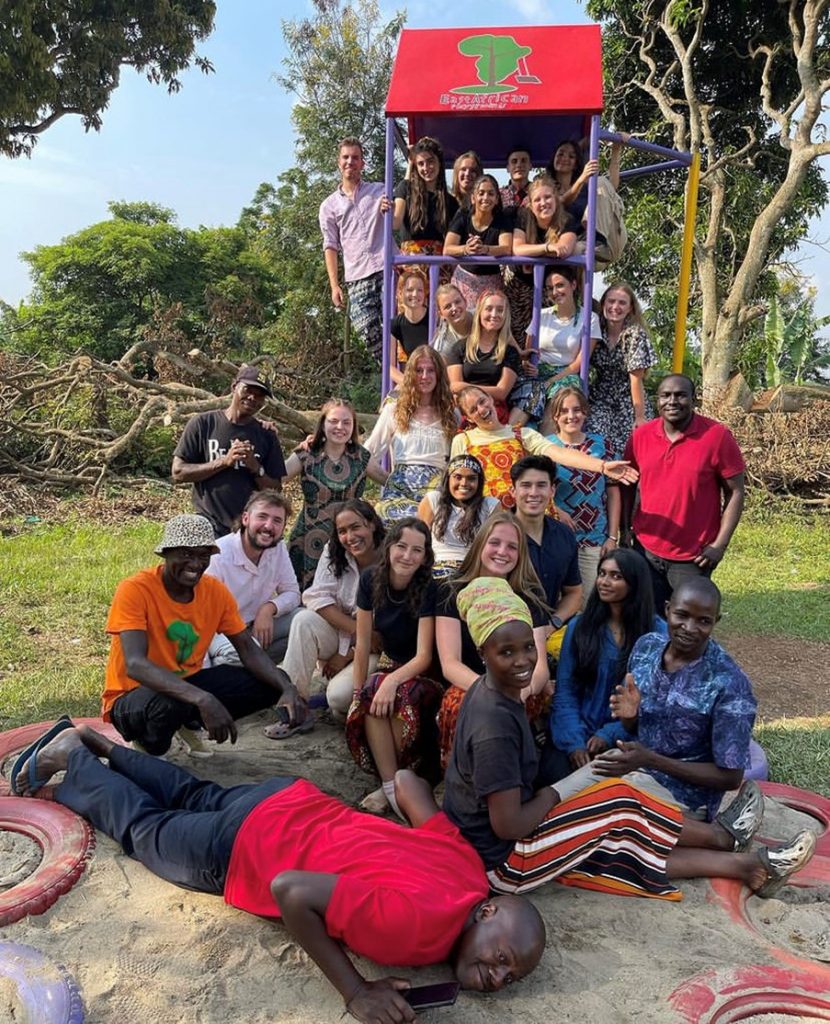
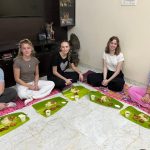 My trip to Chennai, India, as part of the Turing Scheme at BU
My trip to Chennai, India, as part of the Turing Scheme at BU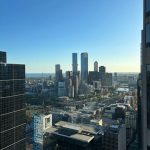 My hospitality placement experience in Melbourne, Australia
My hospitality placement experience in Melbourne, Australia How I spent five weeks in Fiji through the Turing Scheme funding at BU
How I spent five weeks in Fiji through the Turing Scheme funding at BU A day in the life of a student Midwife
A day in the life of a student Midwife